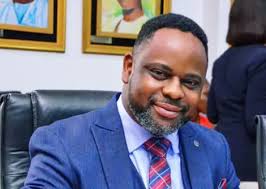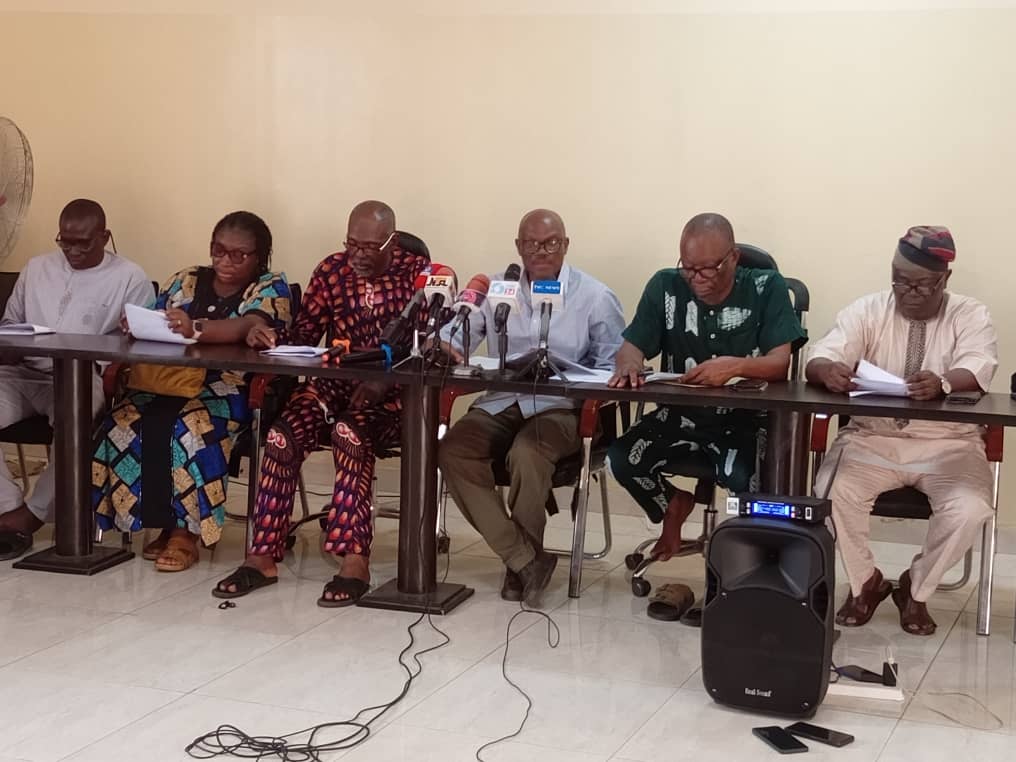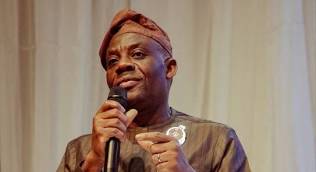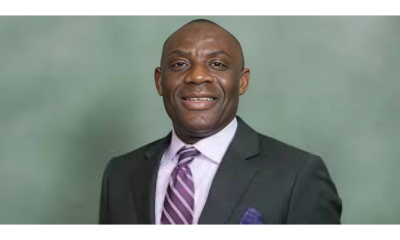Education
Appraising Role of Women in Improving Learning Outcomes

Funmilayo Adeyemi in this piece highlights the crucial roles of mothers in taming the learning crisis in reading and numeracy, confronting the country, which United Nations Children’s Fund (UNICEF) data shows afflicts 70 per cent of Nigerian school children from the age 10
Destiny Adah, a 10-year old primary six pupil cannot read a simple sentence, a development which made her mother, Mrs Esther Adah to seek for help to improve her reading ability.
She engaged the services of a private teacher to improve her child’s reading skills.Esther was billed to write the National Common Entrance Examination in June.
“What a worrisome situation, how can this 10-year old girl prepare for the upcoming examination when she cannot read or solve simple numeracy?
“I cannot help my daughter academically because I was not privileged to go to school, but I want my children to have good and quality education.
“Most of the time, she returns her homework to school if the private teacher is not around to help, as I cannot help her out.
“I have refused to focus attention on her as I usually do with the other children, and her father who is educated does not even have time for her,” she said.
Similarly, a mother of two, Mrs Sarah Ejiga, complained about how her 11-year old son, Godswill Ejiga, a primary four pupil was not able to read or solve simple mathematics.
Ejiga said that the son was given a primary three story book to read, but could not read it perfectly.
Data from the United Nations Children’s Fund (UNICEF), showed that 70 per cent of children in schools cannot read and write or perform basic numeracy tasks by age 10.
The information was deduced from the National Learning Assessment 2017.
The UN agency further said that Nigeria was facing a staggering learning crisis with learning outcomes being one of the lowest globally.
Some education stakeholders also expressed concern about poor reading or learning ability, saying that education as a major driver for the achievement of the 17 Sustainable Development Goals (SDGs) in Nigeria and across the globe should be of concern.
They said: “It is worrisome as the timeline set by the United Nations for achieving the mandate of the 17 goals may not be achievable.’’
They also noted the importance of mothers in improving learning outcomes.
They said that there was need for mothers to complement teachers’ roles at home, through monitoring of their children/wards’ education.
Mrs Peju Rotimi, a mother of three, called on mothers to rise to the occasion in order to help their children to learn, as well as see the importance of education, adding that they will get the benefit if their children are well educated.
Rotimi also encouraged mothers who were not learned to get a home teacher for their children to complement their learning in school.
“Most of the problems start from the home, because nowadays, parents don’t care much about their children/wards education; they are after their work or material things. Only few parents get back home and try to check what their children learnt in school.
“For us to get a head way in our education sector, parents should do their own work at home because they stay more with the children than the teachers.
“So, mothers should be able to check their wards work when they are back from school and see what they can help the children to do,” she said.
Also, Mrs Idowu Oluwafemi, a teacher from Talent Secondary School, Nasarawa State, said that children’s educational background could also be responsible for their inability to read and solve simple numeracy.
Oluwafemi advised parents to start grooming their children early as this would have a way of contributing to the child’s mental and academic background.
She also advised parents to allow their children progress from one class to another.
“We have observed that parents allow their children to jump classes and this affect them, as they will not have the opportunity to learn what their contemporary learnt from the class.
“If a child do not learn what he/she is supposed to learn at that level, it will affect them in the future.
“Some parents also put every responsibility on teachers and they cannot do this alone, considering the students, teachers ratio, especially in public schools,” she said.
She also identified lack of qualified teachers as reason why some of these pupils cannot read at the age of 10, a situation she said must be addressed by the government.
“Governments have to do a lot in improving the academic performance of the pupils, especially those from educational disadvantaged regions or states.
“Also, there is a negative trend as schools don’t even repeat students who performed below expectations again. This situation will continue to spell doom on the sector if nothing is done,” she said.
Mrs Omoyemi Oke, a counselor at Baptist Secondary School, Osogbo, on her part, listed background, unqualified teachers and psychological factors as being responsible for a child’s inability to read and write at age 10.
Oke advised that the school environment of such children should be changed to help them improve on learning and reading ability.
“ A mentally retard student can be worked on because we have methods we can use to teach them, but for a child who is not mentally retard, the school environment must be changed as well as teacher.
“ The parental background of such a child does not have anything to do with his/her reading, as we could see some intelligent parents, but who are not learned,’’ she said.
Sharing UNICEF’s experiences on Reading and Numeracy Activity (RANA), Mrs Manar Ahmed, UNICEF’s Education Specialist, reiterated the need for heavy investment in teachers, both in time and financial resources to achieve SDGs by 2030.
Ahmed spoke at a recent virtual presentation on Scaling Foundational Literacy and Numeracy in Nigeria at a media dialogue in Kano.
She identified low public spending on education, inadequate and under prepared workforce, insufficient physical resource, among others as the problems of learning crisis in Nigeria.
She added that the situation was not peculiar to Nigeria, saying that globally, 53 per cent of 10-year old in low and middle income countries cannot read and understand a simple sentence.
The education specialist also said that 87 per cent of children are in `learning poverty’ as they do not have basic literacy by age 10, with an average of 1.7 per cent of GDP allocated to education, saying this was grossly inadequate.
The expert further said that government should begin to pay adequate attention as tackling teachers training was not enough.
According to her, Nigeria is not lacking the right policy, but staggering learning crisis with learning outcomes is one of the lowest globally.
“In sub Saharan Africa, 87 per cent of children are in learning poverty as they do not have basic literacy by age 10.
“Goal four of the SDG is to ensure inclusive and equitable quality education that promotes lifelong learning and all children by age 10 must know how to read and solve numeracy.
“It is not that Nigeria lacks the right policy, but Nigeria is facing staggering crisis with learning outcomes being one of the lowest.
“So, 70 per cent of the children in school are not achieving basic foundational skills,” she said.
She further stressed that 27 per cent of teaching staff in Nigeria are unqualified, as qualified teachers are in short supply, and stressed the need “to learn to read in order to read to learn to achieve the goals of SDGs by 2030.’’
Corroborating UNICEF’s views, Dr Uche Anunne, Editorial Training Coordinator, News Agency of Nigeria (NAN), said that achieving goal four in the SDGs would directly impact on attaining all other goals.
Anunne called on the government to adhere strictly to the domestication of the UN Convention of the rights of the child as this would eliminate most of the limitations in the SDGs.
Also, Dr Chidiebere Ezinwa, Department of Mass Communication, Enugu State University of Science and Technology, said that poor domestication of the rights of children was responsible for most challenges experienced in the society.
Ezinwa added that poverty and gender inequality must be bridged as they were essential ingredients to the denial of children’s rights.
He urged different countries to come up with their law to address the problems, saying that duty bearers had been given assignment on what to do to address the problem.
However, the Federal Government, through the Teachers’ Registration Council of Nigeria (TRCN), in 2021 conducted mandatory continued development in digital and online teaching training programmes for teachers.
The Registrar, TRCN, Prof. Josiah Ajiboye said the council from January 2022, targets the training of 45,000 teachers across 24 states under the Global Partnership Education (GPE) Digital Literacy Training as well as Remote Learning Strategies For Teachers.
This, he hopes, will boost teachers’ service delivery. (NANFeatures)
Education
FG vows full WAEC CBT shift by 2026 – Minister

The Minister of Education, Dr Tunji Alausa, has reaffirmed the Federal Government’s commitment to fully transitioning to Computer-Based Test (CBT) examinations for the West African Examinations Council (WAEC) and other exam bodies by 2026.
Dr Alausa made this known while monitoring the conduct of WAEC’s CBT examinations in Abuja on Wednesday.
He expressed optimism about Nigeria’s capacity to modernise its examination system and reduce widespread malpractice through digital innovation.
Commending WAEC’s initiative, the minister described the shift from traditional pen-and-paper exams to CBT as a historic and crucial step toward fairness and educational integrity.
“We are working very hard to eliminate fraud in our exam system, and WAEC is taking the lead,” he said.
Highlighting the advantages of CBT, Alausa noted that the system simplified the exam process while significantly curbing cheating.
“We now have clear evidence that when exams are done using technology, the level of fraud is minimised to almost zero,” he stated.
He further lauded WAEC’s internal safeguards, explaining that the CBT system was operated via a secured Local Area Network (LAN), making it “literally impossible” to hack.
According to the minister, by Nov. 2025, all WAEC multiple-choice exams will be conducted using CBT.
He added that essay questions and NECO examinations would follow suit by 2026.
On infrastructure and logistics, particularly in remote areas, Alausa acknowledged the challenges but assured that scalable solutions are in progress.
“Are we going to be ready to provide every single needed infrastructure by November? Absolutely not.
“But as we move into the future, we will be ready. We have to challenge ourselves as government,” he said.
He also addressed concerns over the logistics of conducting multiple exams.
“In WAEC, the average student takes about eight to nine papers.
“They do it over several days. Those are the logistics we, as administrators, have to work through, and we already are,” he explained.
The ongoing WAEC exams, which began on April 24, are scheduled to conclude on June 20, 2025.
A total of 1,973,253 candidates from 23,554 schools are participating. Of this number, 979,228 candidates are male, accounting for 49.63 per cent, while 994,025 candidates are female, making up 50.37 per cent.(NAN)
Education
We will Capture Out-of-school Children in Our Education Programmes – Enugu Govt

The Enugu State Commissioner for Education, Prof Ndubueze Mbah We will Capture Out-of-school Children in Our Education Programmes – Enugu Govt says the state government will redouble efforts to capture out-of-school children in its programme.
The commissioner gave the assurance on Tuesday in Enugu during the celebration of the 2025 Children’s Day held at the Nnamdi Azikiwe Stadium, Enugu.
Mbah said that the state was working in collaboration with community and faith- based institutions to ensure that no child was neglected or forgotten.
He encouraged them to be calm as they were not forgotten noting that they would be remembered through inclusive education programmes.
Mbah said that education was their right adding that the present administration was committed to making it a reality for them.
He, however, said that every child irrespective of status, gender, location or ability was valued and their welfare would be taken into consideration.
He said that they deserved to grow in a safe, nurturing environment with opportunities to dream and become successful as this administration would continue to protect their rights, well-being, and empower them through education, healthcare, and innovation.
“As we celebrate international children’s day today, remember that you are the leaders of tomorrow.
“Let your voices be heard, your talents be seen, and your dreams shall come through.
“To our school children, we commend your efforts, resilience, and passion for learning. You are the builders of the Enugu State.
“Government investments in smart schools, teacher training, digital tools, and innovation are for you to be equipped with skills for a future that has already begun,” he said.
In the same vein, the Secretary to Enugu State Government, Prof. Chidiebere Onyia, encouraged every child in the state to remain focused and work hard to attain their desired goal.
Onyia said that with the introduction of Smart Schools in 260 political wards of the state, every child in the state would soon compete with their counterparts globally.
He emphasised that the administration had investment heavily in education sector to ensure that both privileged and non privileged children are equipped with basic skills and knowledge.
The event featured march past by various public and private primary and secondary schools in the state. (NAN)
Education
Strike Looms as ASUU Accuses FG of Endless Agreement Negotiations, Others

By David Torough, Abuja
The Academic Staff Union of Universities (ASUU) has once again raised the alarm over the Federal Government’s persistent failure to honour past agreements, warning that another nationwide strike may be imminent.
ASUU’s new President, Professor Chris Piwuna, at a press conference in Abuja on Friday criticised the government’s inaction on critical issues affecting Nigerian universities.
Piwuna demanded the immediate implementation of all Memoranda of Understanding (MoUs) and Memoranda of Action (MoAs) signed since 2013.
ASUU emphasised that fixing Nigeria requires fixing its universities, which are plagued by poor funding, stalled agreements and government neglect.
The Union also demanded the release of withheld salaries from the 2022 strike and payment to lecturers on part-time and sabbatical appointments affected by the IPPIS payroll system, while condemning political interference in university administration, unlawful appointments, and the undermining of institutional independence.
It further called for an education summit, proper implementation of past agreements, and a stop to the misuse of TETFund resources. It warned it will not remain passive while its members’ rights are trampled.
ASUU urged the government to resolve all outstanding issues to avoid further disruption. While open to dialogue, the union signaled potential industrial action if demands are ignored, reaffirming its commitment to the struggle for quality education.
“Almost three decades since Nigeria’s return to civilian governance, it is not yet Uhuru. The country is still pathetically trapped in the web of multifaceted political malfeasance graphically sign-posted by prebendal politics, mindless manipulation of electoral processes, brazen nepotism, and deliberate subversion of people’s will at every level of governance.
“The sum total of all these is that transparency and accountability have become rare commodities in the hands of the managers of the Nigerian state. Consequently, the generality of citizenry have become despondent, having lost hope and faith in government and its agencies.
“If given the desired attention, Nigeria’s universities should provide the solution ground to solving its multi-faceted and multi-dimensional problems. ASUU has remained focused in the struggle for improved funding and revitalization of these institutions.
“A starting point to achieve this noble goal is to prevail on government to address all outstanding issues in our previous engagements. This will create a conducive atmosphere for addressing the welfare issues of Nigerian academics for the optimal discharge of their statutory responsibilities as the think-tank of the country and mentors for future leaders in all aspects of national development. ASUU remains open to discussion in this respect.
“However, the Union would not continue to look helpless while the rights of its members are being trampled upon and washed away with reckless abandon.”
ASUU stated that the level of implementation of the 2009 FGN/ASUU Agreement is not encouraging, saying that although a few issues are partially implemented, many remain unaddressed.
These, it said include the conclusion of the renegotiation of the 2009 Agreement based on the Nimi Briggs Committee’s draft agreement of 2021; release of withheld three-and-a-half months’ salaries due to the 2022 strike; release of unpaid salaries for staff on sabbatical, part-time, and adjunct appointments affected by the Integrated Payroll and Personnel Information System (IPPIS); release of outstanding third-party deductions such as check-off dues and cooperative contributions; funding for the revitalization of public universities; payment of Earned Academic Allowances (EAA); concerns over the proliferation of universities by federal and state governments; non-constitution of some universities’ governing councils; and adoption of the University Transparency and Accountability Solution (UTAS) in place of IPPIS.
It noted that the government agreed to mainstream the EAA into salaries with the creation of an irregular allowance as a budget line in the 2026 Budget, after releasing N50 billion for the backlog and budgeting N29 billion for the payment of 2025 Earned Academic Allowances and agreed to release N150 billion as a revitalisation fund within four weeks from April 2025.
“However, we are still waiting for government to fulfil these promises. The Union has also reached an understanding with the Yayale Ahmed-led Committee, following the review of the report of the Nimi Briggs-led FGN-ASUU Renegotiation Committee in December 2024. Again, ASUU members have been left in limbo, waiting for the signing of an agreement five months after.
“Delegates at the UNIBEN National Delegates Conference exhaustively evaluated the government’s disposition in resolving outstanding issues with the Union and expressed regrets that nothing has significantly changed in the last two years.
“The irreducible minimum that can guarantee industrial harmony in the Nigerian University System (NUS) is for government to speedily address all outstanding issues including conclusion of the renegotiation of the 2009 FGN/ASUU Agreement, payment of the withheld three-and-a-half months’ salaries, release of the backlog of promotion arrears, payment of withheld salaries of sabbatical and part-time lecturers on account of not signing into the discredited IPPIS, and addressing the unjust victimization of ASUU leaders and members in some state universities.
“Beyond these, we demand a faithful implementation of all issues arising from our previous Memoranda of Understanding (MoUs) and Memoranda of Action (MoAs) government signed with ASUU since 2013.”
ASUU also called on state governors and visitors to these universities to, without further hesitation, resolve lingering issues and reinstate its members without delay in the interest of justice and industrial peace.
On the erosion of university autonomy, the union expressed deep concern. “ome recent developments in Nigeria’s public universities are of grave concern to our Union. We are discomfited by the ongoing attempts to completely erode the autonomy of public universities by the political class and the bureaucrats.”































